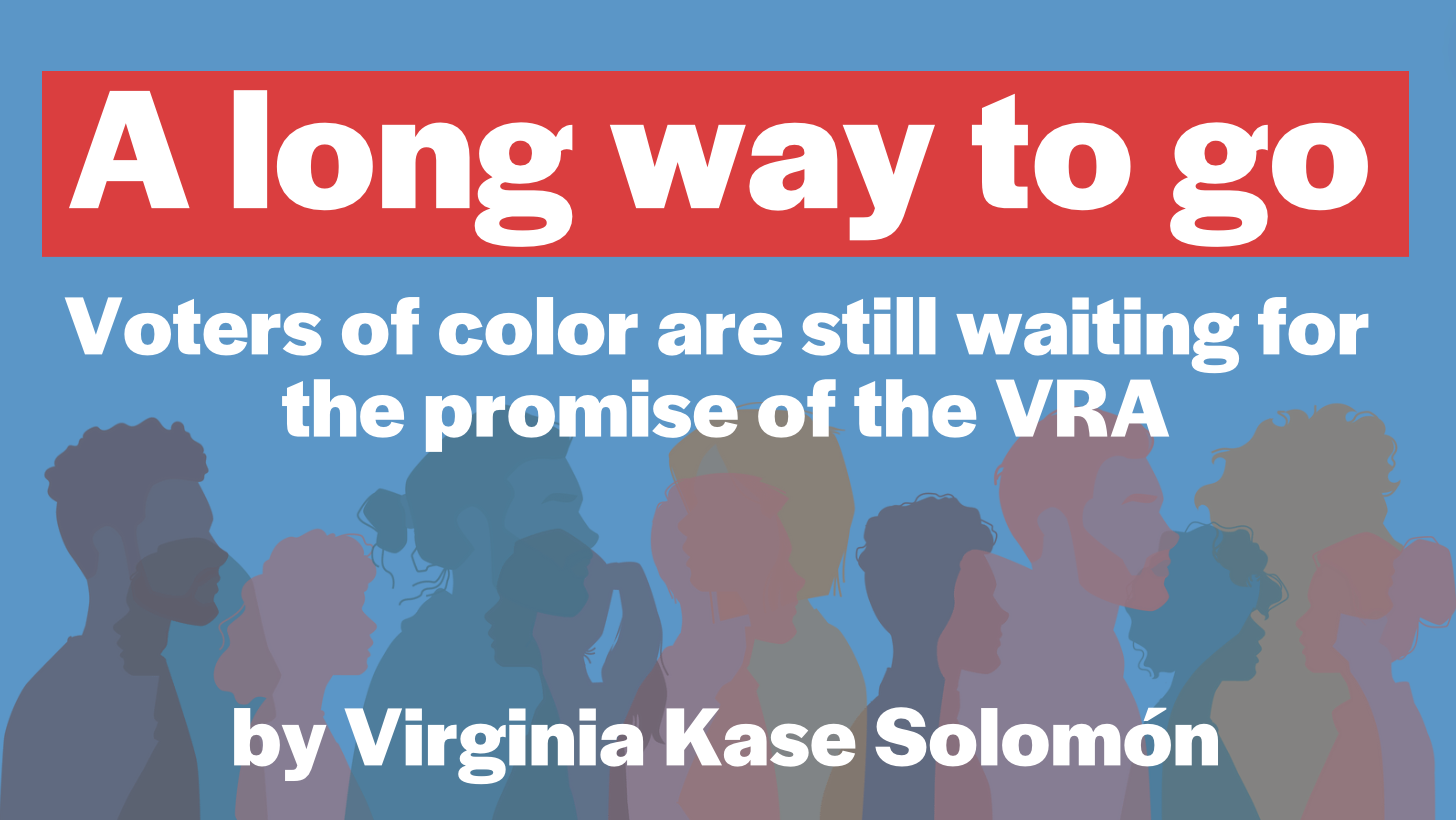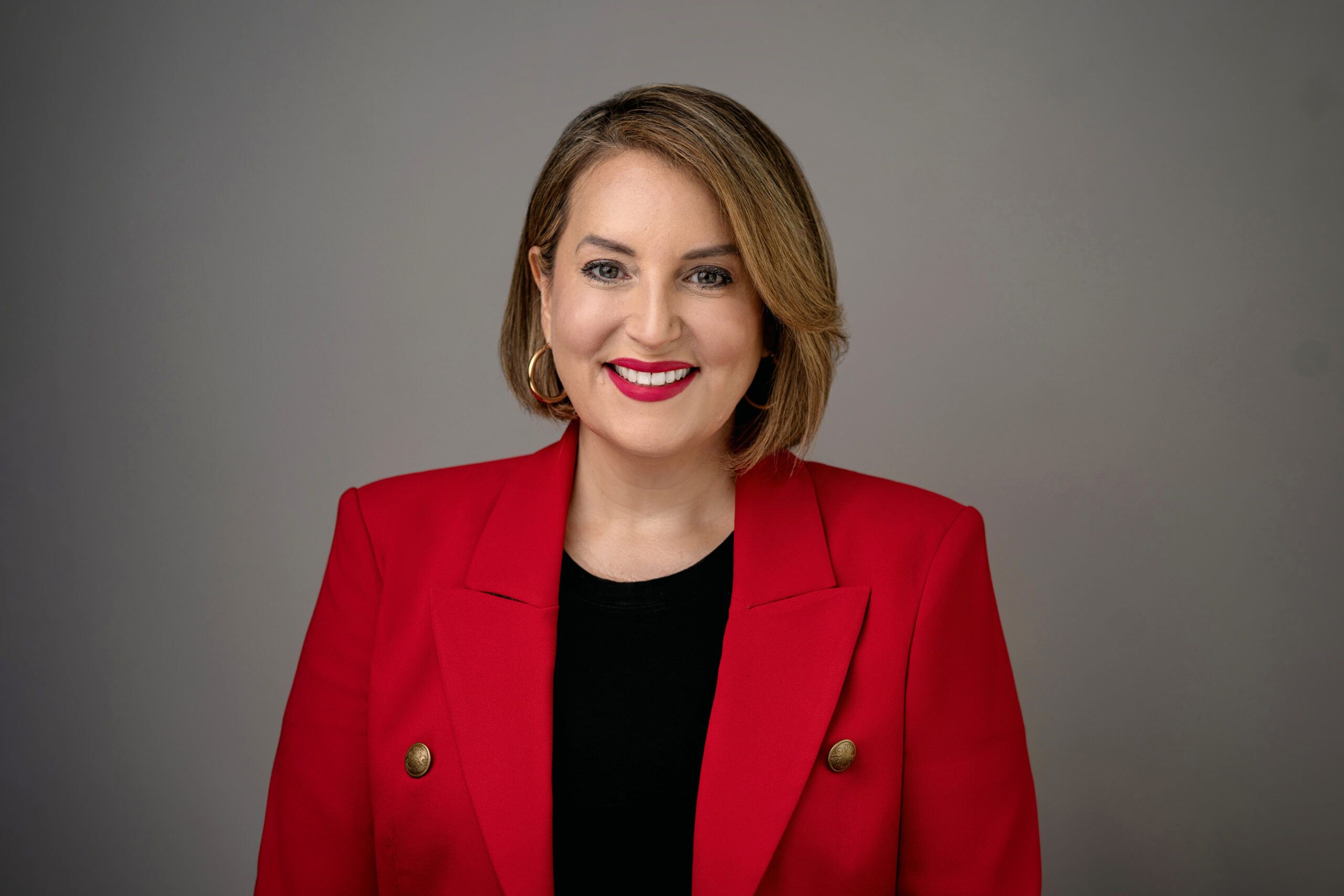Press Release
A long way to go: Voters of color are still waiting for the promise of the VRA

Fifty-nine years ago on Tuesday, President Lyndon B. Johnson signed the Voting Rights Act into law, saying “it is not enough just to give men rights. They must be able to use those rights in their personal pursuit of happiness.”
He went as far to say the new law meant “the last of the legal barriers is tumbling.” Despite his vision for a more representative democracy, it is not yet a reality for voters of color, especially Black and Latino voters.
My own first-time voting was a formative experience—I saw firsthand that despite what we read in our history books, not all voters experience democracy equally. And I saw what happens when policy is weaponized against the people.
Growing up, voting was a rite of passage. My foster mom, a proud Puerto Rican woman, taught me and my sisters that the right to vote was our most sacred right—our way of making our voice heard.
She took her civic duty seriously having grown up in Puerto Rico, where she was denied the right to vote for president. As a Latina, she saw voting as a responsibility, knowing many others didn’t have the same opportunity.
I took on that same enthusiasm to my first time at the polls. My experience was routine—I gave my name and was handed a ballot. By the time I submitted my ballot, my mom, who has dark brown skin, had not made it past the registration table.
At first, I thought maybe the election workers had trouble understanding her thick Spanish accent, but I learned they were looking for additional proof of her residence.
As a young woman, I was confused as to why, as a first-time voter, I had no issues, but my mom who has never missed an election, struggled just to receive her ballot. But she was not going to let anyone stop her from exercising her right to vote. She went home and brought back a utility bill, slamming it on the table saying “¡toma!” which means “take it” in Spanish.
While I was glad she was able to cast her ballot, it should not have been that difficult. And it was one of the first times I realized I was treated differently than my mom, I assume because my skin is white and hers is brown. It was hurtful to see someone I love go through that, and it’s an experience many Americans still face today.
Today, cynical forces from Missouri to North Carolina are actively working to cast doubt on our elections, sideline Latino voters from participating in the 2024 election, and worse, stoke fear about our immigrant sisters and brothers to try and divide us.
Noncitizen voting is already illegal in all federal elections and there are checks in place to stop ineligible ballots from being counted, just as there are for voters who cast a ballot in the wrong precinct.
The truth is those who are spreading disinformation about noncitizen voting are playing on people’s very real concerns about election integrity and using the issue to demonize those who may look and sound different from us. Most concerning, they are laying the groundwork needed to call “foul” if the election doesn’t go their way.
Sadly, this anti-immigrant playbook is not new. We often experience a new wave of anti-immigrant sentiments to benefit a political agenda—a trend in both liberal and conservative states. Take bright blue California for example, home of the racist Japanese internment camps in the 1940’s, and the state that led the anti-Latino American movementin the 1990’s.
With fewer than 100 days to go until the November general election, Common Cause and our national partners are hard at work addressing a host of threats, including violence and intimidation, to ensure all voters have a positive experience and know their rights.
One way to help protect every vote is to join our election protection program where we recruit, train, and mobilize hundreds of thousands of nonpartisan volunteers across the country to assist voters at the polls. We also offer a toll-free hotline, 1-866-OUR-VOTE, in English and other languages, to offer real time assistance, everything from helping voters find their right polling location to working with election officials to address long lines.
And after all the votes are accurately counted, the new president and Congress must make voting rights a priority and make the John Lewis Voting Rights Advancement Act the law of the land.
Democracy should be for everyone, but far too many people feel unwelcome here, and we must right that wrong. On the anniversary of the Voting Rights Act, the law meant to end discrimination at the polls, let’s make it easier for every eligible voter to cast a ballot—rather than create more obstacles for political gain.

